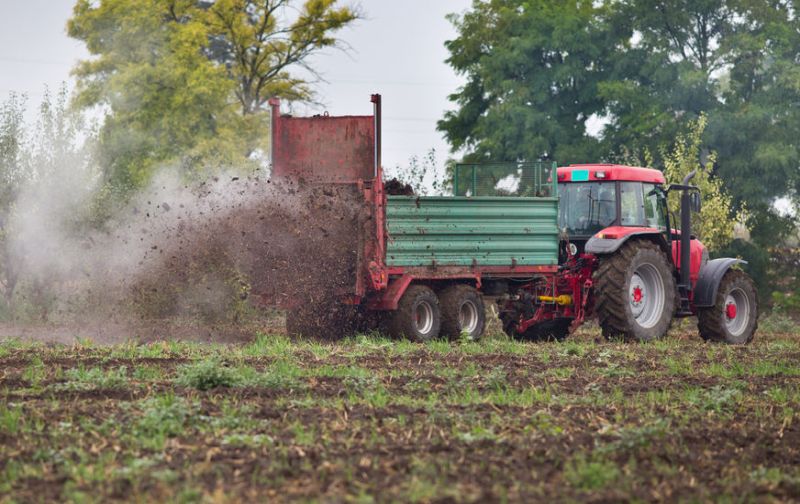
Farmers have called upon Welsh government to make public key information relating to the proposed Nitrate Vulnerable Zones across the whole of Wales in 2020.
This includes full disclosure of the advice and evidence received by Welsh government from Natural Resources Wales (NRW).
NVZs are areas within Wales that contain surface water or groundwater susceptible to nitrate pollution from agricultural activities.
The Welsh government is responsible for maintaining and improving the quality of the aquatic environment, and carries out a review of the zone's areas every four years.
But numerous farm groups in the country believe an all-Wales proposal, due to be enforced this year, would not be effective in delivering water quality improvements.
NFU Cymru, which has campaigned for months to halt the plans, said the NVZs would also be highly damaging for farm businesses and the wider economy.
The group is requesting Welsh government to make public the information and evidence it has to justify whole territory proposals.
Welsh government has, however, already refused to disclose the advice and evidence relating to the proposed regulations that it has received from NRW.
This comes as NFU Cymru made a Freedom of Information request under the Environmental Information Regulations.
The union's deputy president, Aled Jones said: “Clearly this decision is very disappointing. As environmental regulator and adviser to government, NRW will play a key role in the application of the EU Nitrates Directive in Wales if the Minister decides to implement this directive.
“NRW is also the enforcement body for NVZ rules which, if the current proposals are taken forward, will apply to every farm business across Wales.
“Information supplied by NRW as part of the Nitrates Review in 2016 provided no justification for the introduction of NVZs across the whole of Wales.
“We believe it is very much in the public interest to understand what information Welsh government has received from NRW since then to lead Welsh government to such a costly and damaging NVZ proposal,” Mr Jones said.
“It is also legitimate to understand whether Welsh government whole Wales NVZ proposal aligns with the advice of the principal adviser to government on all matters relating to the environment and natural resources.”
NFU Cymru has also repeatedly expressed concerns about the way in which the proposals for the introduction of regulatory measures to address agricultural pollution have been developed without a thorough understanding of the costs and impact of the proposals.
Mr Jones added: “The Regulatory Impact Assessment is a critical document in understanding the impact of regulatory proposals. The significant importance of this assessment and potential long term implications, calls for a high level of scrutiny.
“No decision should be taken without a comprehensive understanding of the full impact of that decision.”
The union has this week written to the minister for rural Affairs, Lesley Griffiths, to reiterate the key factors that it believes should be considered as part of a comprehensive Regulatory Impact Assessment.
Mr Jones said: “A comprehensive impact assessment must consider the impact of an all Wales NVZ on farm viability and capacity of farm businesses to afford the cost of new regulations and continue trading, alongside consideration of the impacts of proposed NVZ regulations on employment, both direct and indirect, on Welsh farms as well as in the allied industry and wider supply chain.”
It comes against the backdrop of latest figures on Farm Business Incomes in Wales (2018-2019), which have shown drops in income of 43% on dairy farms, 30% on cattle and sheep (LFA) farms and 29% on cattle and sheep (lowland) farms.
“The impact assessment must also take account of specific sector impacts including the dairy and specialist beef sectors, as well as the ability of tenant farmers and farmers suffering long term bovine TB breakdowns to reach compliance with NVZ regulations,” Mr Jones added.
“The full cost and impact of the regulations must be considered alongside a similar comprehensive assessment of the benefits to Water quality that the EU Nitrates Directive would deliver in Wales.
“The proposed new regulations will impact on every farm, every sector and every area of Wales and their proposed introduction is contributing considerably to high levels of stress and anxiety within the farming community at, what is already, an exceedingly difficult time,” he said.
